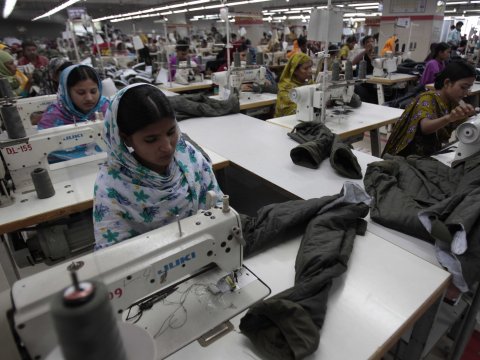
In the wake of the 2013 Rana Plaza building collapse, which killed more than 1,100 Bangladeshi garment workers, a group of retailers formed a pact to prevent future disasters. Some firms hesitated to sign the legally binding contract, fearing litigation. The labor unions and European firms which created the pact were concerned about the lack of cooperation and the implications for reform in Bangladesh.
Bangladesh Fire and Safety Accord
On July 8, 2013, over 80 global retailers, mainly European, and two labor unions proposed a five- year plan to improve working conditions in Bangladesh garment factories called the “Bangladesh Fire and Safety Accord”(BFSA).
1.Features of the pact included:
- Independent inspections of factories, with safety violations made public on the Internet
- Retailers to underwrite mandatory repairs and building improvements at factories
- Fire and building safety training to be given by trade unions
- Trade unions to have a seat on the Accord’s governing board
- Legally binding arbitration for non-compliance, led by the Accord’s steering committee
The pact required inspection of factories working for the signatories over two years
2. During that period, signatories of the Accord agreed to maintain production in Bangladesh. Participating retailers would share information about the factories they used, and each of those factories would be inspected within nine months.
3. Factories found to be unsafe would close for repairs, and workers would be paid up to six months’ salary during that time.
4. The cost of implementation would be split according to the proportion of production each brand had in Bangladesh – with a maximum outlay per retailer of $2.5 million over five years.
5. If a retailer failed to provide funding, or continued production in unsafe factories, the signatories could file complaints. A committee composed of three labor group representatives, three brand representatives and one member from the International Labour Organization (ILO) would enforce the Accord’s terms.
6. Disputes would be referred to arbitration, as needed, and the outcome would be legally binding in the brand’s home country. No penalty provisions were included in the pact.
For full article please download PDF file Rana Plaza (B)